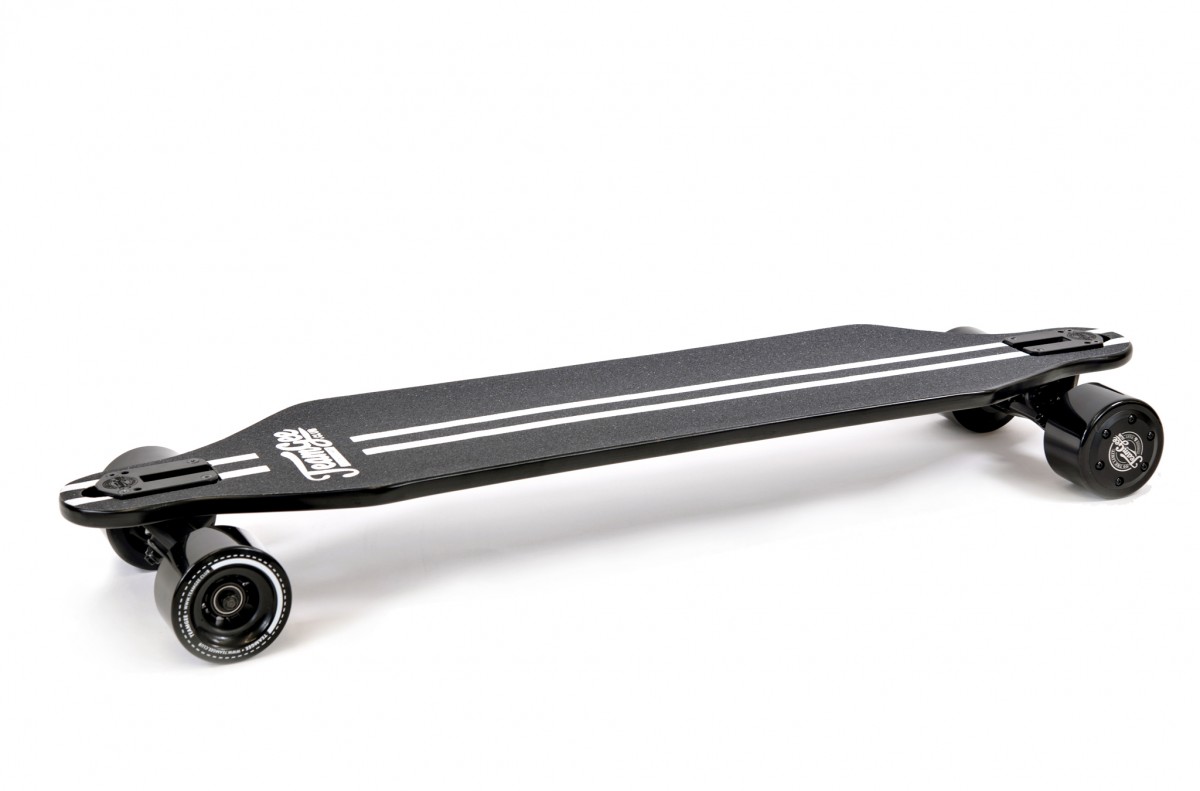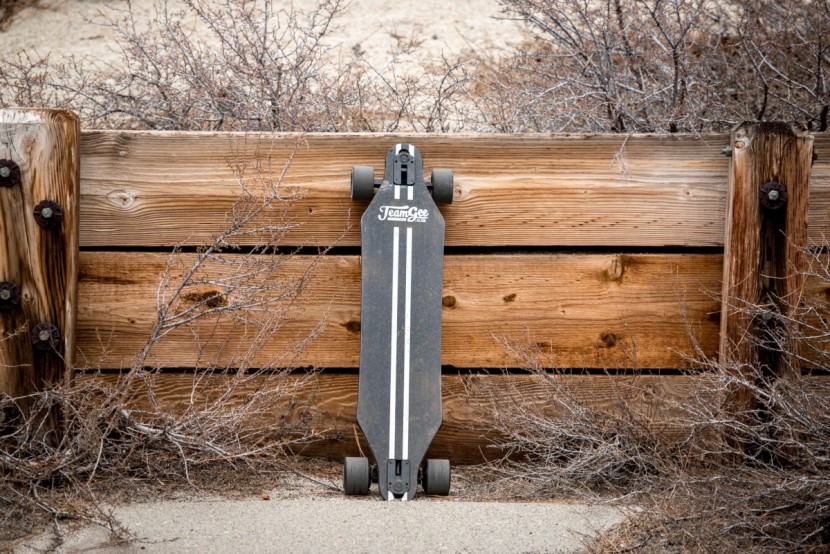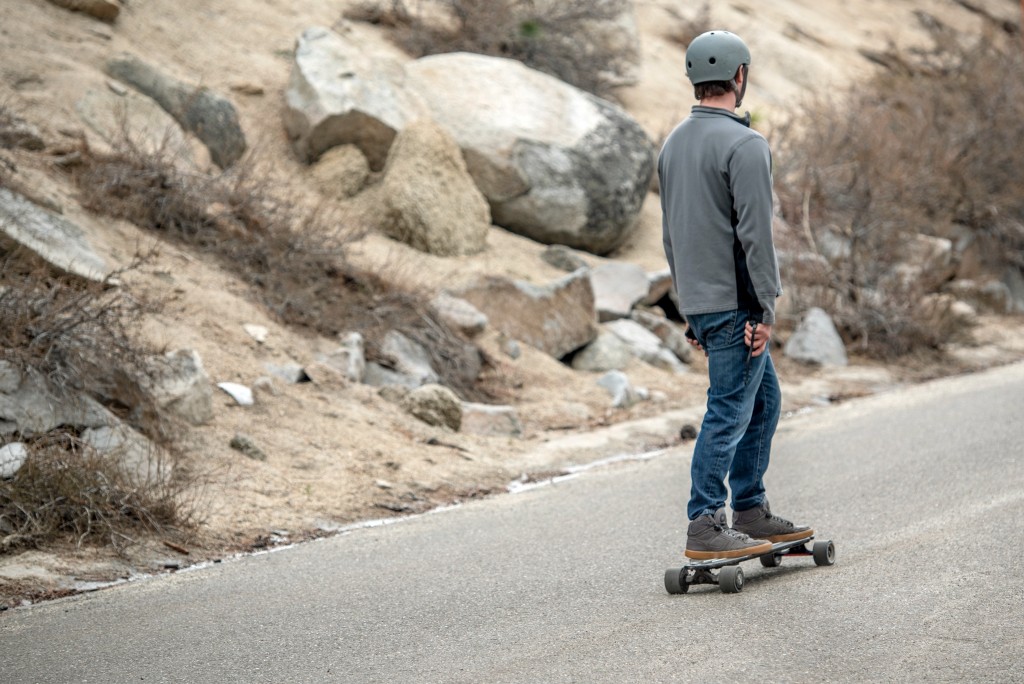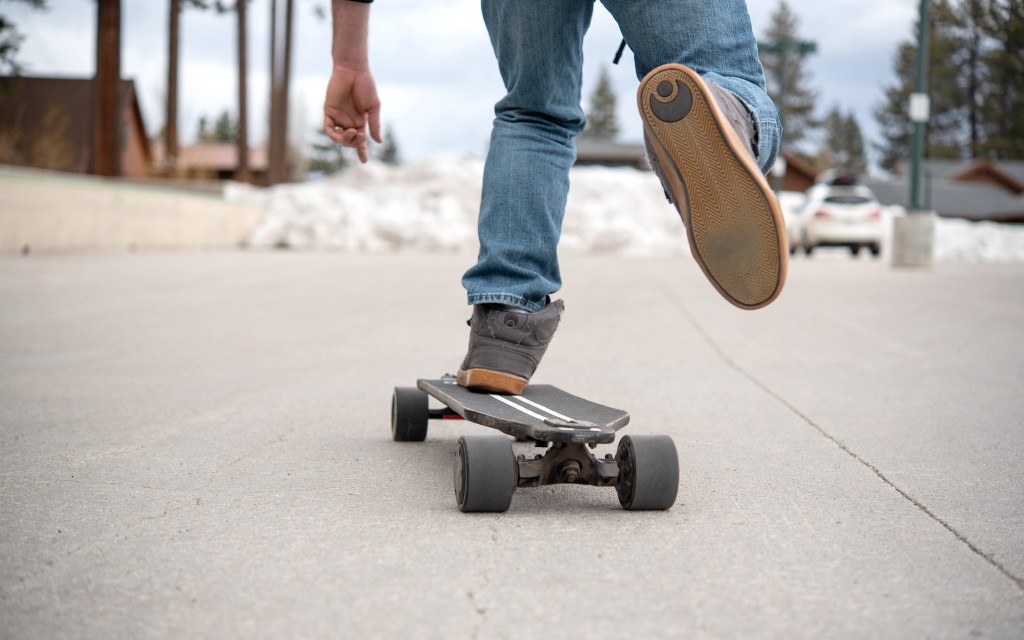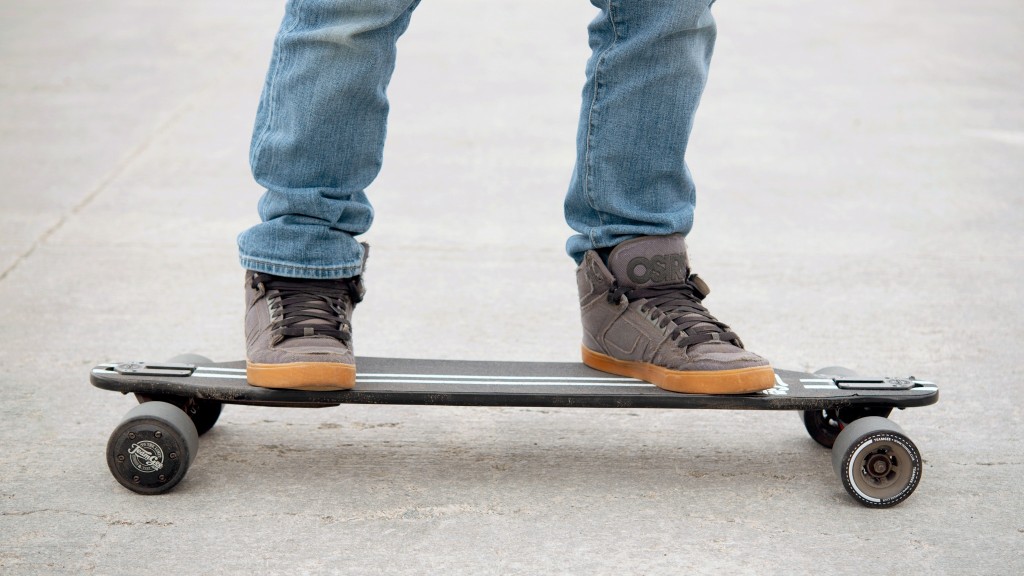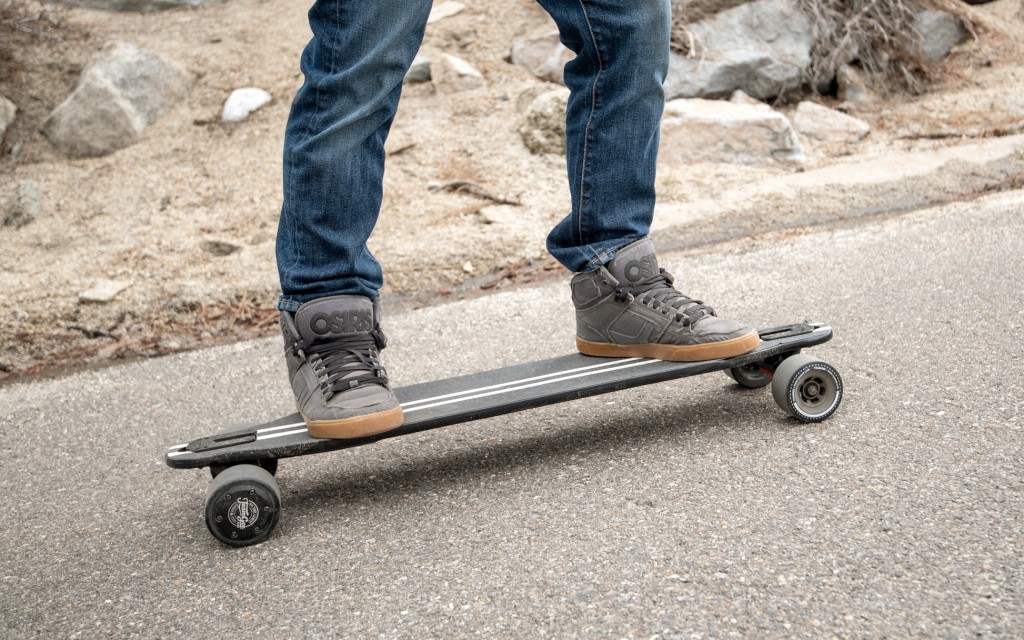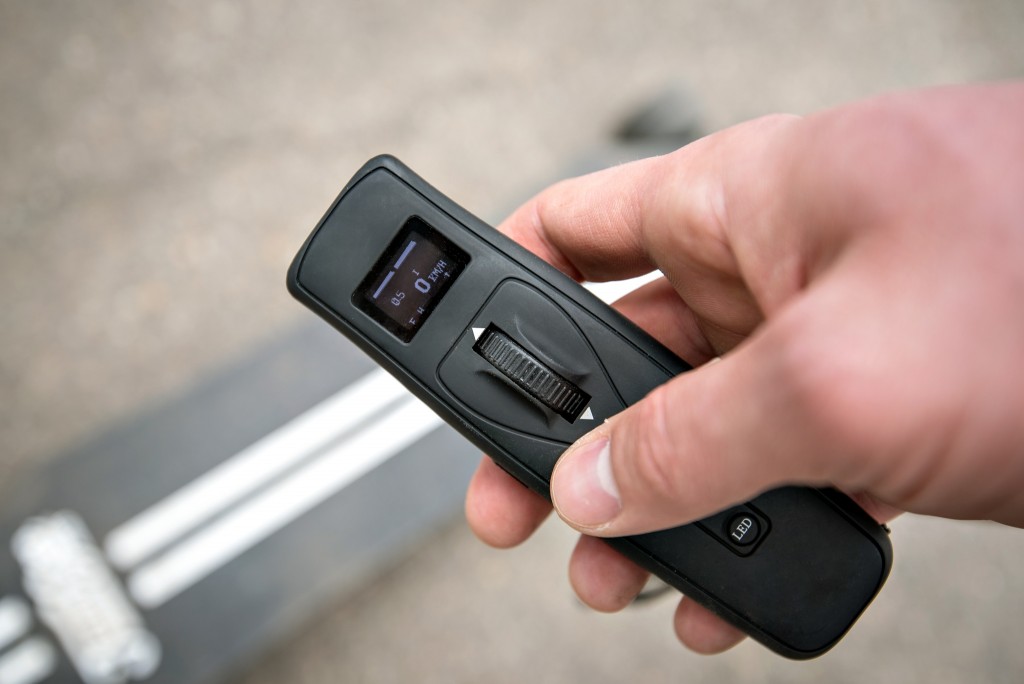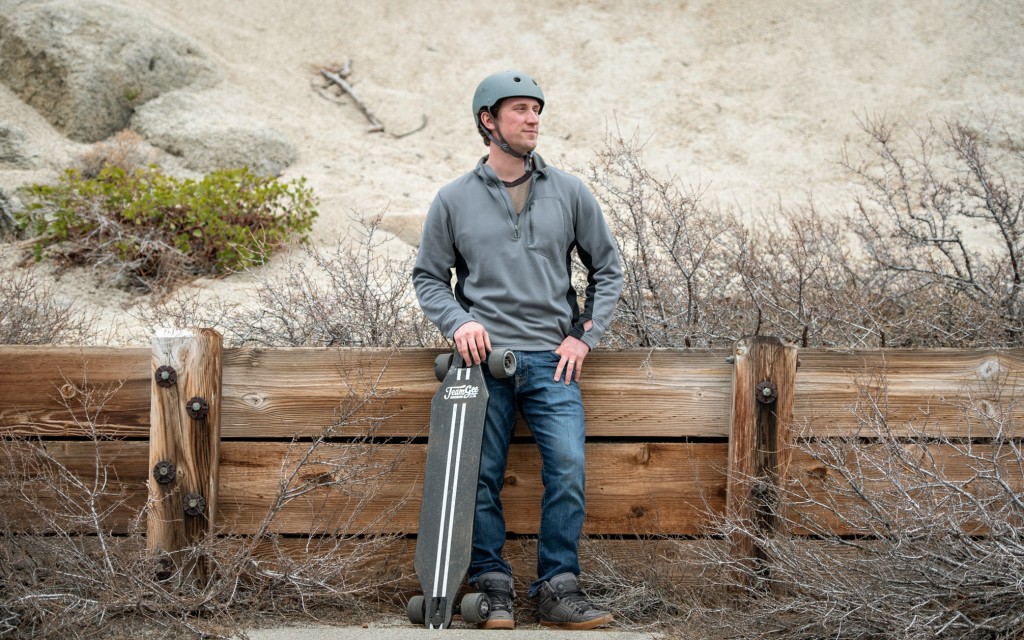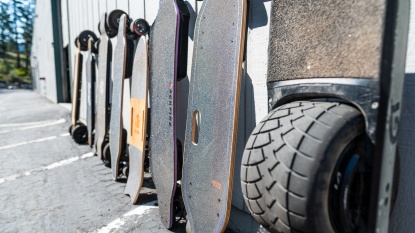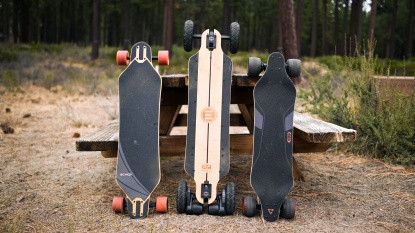Teamgee H5 Review
Our Verdict
Our Analysis and Test Results
This board finished right at the back of the group, just a point behind the Riptide R1. The Riptide is a little faster than the Teamgee H5 and has a longer range, but its ride isn't as good and it doesn't stop as quickly as the Teamgee. The Riptide also usually costs quite a bit more than the Teamgee.
Speed
To start off, we assessed and compared how fast each skateboard is and how quickly it can accelerate, which together combine to constitute 25% of the final score. The H5 did slightly above average, earning a 6 out of 10.
This board hit an average of 17.43 mph after three trials in our top speed test. We gave the board plenty of room to hit its top speed, then timed how long it took to cover a set distance. This is faster than many of the cheaper boards, but can't compare to the top-notch boards.
Next, we timed how long it took the board to complete our testing course when it was starting without any speed to compare its acceleration. The Teamgee H5 is fairly fast off the line, finishing the course in an average of 4.84 seconds — a little over 0.5 seconds slower than the fastest boards in the test.
Range
Unfortunately, the Teamgee H5 didn't do particularly well in our range testing metric, which makes up one-fifth of its total score, earning a 3 out of 10. This is based on how far the H5 could travel on flat pavement before dying and how long it takes to recharge a totally depleted battery.
For our range test, this board did cover about 7 miles, but we feel that its effective range is closer to 6. It started slowing down around 5.5 miles and was barely trudging along for the last portion of the test.
It is about average when it comes to recharging time, taking a bit under three hours to completely top off a dead battery in our test.
Ride
Next, we evaluated and scored the Teamgee H5 on how it handled rougher patches of pavements and cracks in the road, how comfortable it is to ride, and how much we were drawn to it relative to other boards, which together also account for one-fifth of this board's final score. The H5 did a bit better in these tests, though it still wasn't great, earning it a 5 out of 10 for its middling set of results.
This skateboard is quite comfortable to ride, offering a solid deck that is large enough for a normal stance and feels fine to stand on for considerable amounts of time. The deck is flat — with only a slight amount of convexity — and feels quite stiff. However, this board did a surprisingly good job at absorbing vibrations from bumps or rougher road.
However, the Teamgee is a bit underpowered, so it tends to stall out and briefly pause if you cross a crack in the pavement and if the wheels bind up at all. Other than that flaw, we were solid fans of this board and never really found an issue with grabbing it for a quick trip around town, although we would pick different board if we knew the road was particularly chewed up where we were heading.
Hills
The H5 delivered a surprising performance in our hill climbing evaluation for a hub motor board, earning a 6 out of 10. For this testing criterion, we rode the Teamgee up slopes with steeper and steeper inclines, grading it on how fast it went up each hill. This is responsible for 15% of its final score.
This skateboard cruises up a 5% or 10% slope without much of an issue at all, but it does travel a little slower than some of the other boards. It does make it up a 15% slope, but it travels slow, though it is still quicker than walking. With hub motors, it is best to start a hill with at least a little bit of speed. The H5 managed to start from a stand-still on the 15% slope but it wasn't a happy camper.
Build
In this testing criterion, responsible for 10% of the final score, we looked at how responsive the board is to remote commands, its weight, and the remote's design and build. In addition, we also contacted the technical support team at Teamgee and awarded points on how helpful they were and the included warranty with this board. Overall, the H5 delivered another middle-of-the-road performance, earning a 5 out of 10.
We did appreciate that this board is on the lighter side, especially since it doesn't have the most impressive range and you might end up carrying it! This board weighed in at 14.5 lbs., comparing quite favorably with the other boards in the bunch.
The remote is fine to hold, but the construction doesn't seem quite as solid as some of the premium boards. It feels ergonomic in your hand with intuitive controls and even has an LCD screen with a battery status readout. It has two riding modes and a slide switch that makes it easy to swap between them.
The H5 is solidly responsive to commands from its remote, with the throttle offering you even and consistent control of your speed. Unfortunately, we found it very difficult to contact customer support, receiving exceptionally delayed responses. This board also has one of the shorter warranty periods — three months.
Braking
Our last two tests dealt with how well each electric skateboard can stop, which are responsible for the residual tenth of each one's total score. The Teamgee H5 did improve in this metric, meriting a 6 out of 10.
For our first test, we rode the board at a moderate speed on flat ground — around 12 mph — then fully applied the brakes and measured the distance required for the board to stop completely. We did this three times and average the results to determine the scores. The H5 didn't actually do amazing in this test, taking an average of 46 feet — a bit longer than most boards.
Our second test focused on how easy it is to control your downhill speed when descending a hill. The Teamgee did much better than this, allowing you to pretty much completely stop on hills up to a 10% grade. You can control your speed pretty well on hills steeper than that, but only if you aren't going too fast at the top of the hill and you never disengage the brakes. It can't cope if you have significant momentum going into the hill and doesn't seem to have much stopping power if you let off the brakes and then reapply them.
Value
While the H5 is a relatively inexpensive board, it isn't a great value since there are similarly priced boards that perform much better.
Conclusion
All in all, the H5 isn't a terrible board, but it is very far from being the best.


